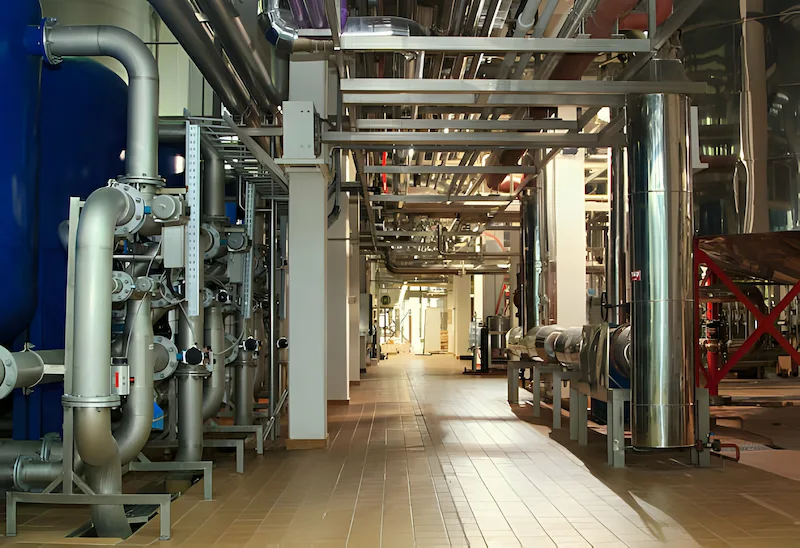Introduction
When it comes to achieving high purity levels in water, deionized water systems are a cornerstone for various industries and applications. These systems, designed to remove ions and minerals from water, offer a plethora of benefits, from enhancing the longevity of machinery to ensuring the quality of lab results. In this article, we dive into the top benefits of using deionized water systems, shedding light on why they are an indispensable part of modern operations.
What is Deionized Water?
Definition and Process
Deionized water is water from which ions, including minerals and salts, have been removed. The deionization process involves passing water through ion exchange materials that remove the charged particles from the water.
How Deionization Works
The deionization process is a method of water purification that utilizes ion exchange resins to remove dissolved ions (such as salts and minerals) from water. These resins are charged: cation exchange resins have a positive charge and attract negatively charged ions (anions), such as chloride and sulfate, whereas anion exchange resins have a negative charge and attract positively charged ions (cations), such as sodium and calcium.
As water passes through a deionization system, its dissolved salts are attracted to and held by the resin, effectively removing them from the water. This process continues until the resin becomes saturated with the removed ions. At this point, the resin must be regenerated, usually with a strong acid or base, to restore its ion exchange capacity.
The result is highly purified water, free of charged ions, making it ideal for use in settings where water quality is critical, such as laboratories, pharmaceutical manufacturing, and electronics production.
Top Benefits of Using Deionized Water Systems
Purity and Quality of Water
The most significant advantage of deionized water is its purity. Removing minerals and contaminants ensures that the water is of the highest quality, crucial for industries where water purity is paramount.
Cost-Effectiveness
Compared to purchasing bottled water, deionized water systems offer a cost-effective solution. Over time, the investment in a deionization system pays off, providing an endless supply of purified water at a fraction of the cost.
Environmentally Friendly
Deionized water systems are a green alternative. By reducing the dependency on bottled water, these systems help in cutting down plastic waste, contributing to environmental conservation efforts.
Versatility in Applications
Deionized water finds its use in a variety of settings. From industrial manufacturing, where it prevents scale buildup and corrosion, to medical and laboratory environments, where water purity is critical, its versatility is unmatched.
Longevity and Maintenance of Equipment
The use of deionized water prolongs the life of machinery and equipment by preventing the buildup of minerals that can cause scale and corrosion. This not only saves on maintenance costs but also ensures the smooth operation of equipment.
How to Choose the Right Deionized Water System
- Assess Your Water Purity Needs: Different applications require different levels of water purity. Identify the specific contaminants you need to remove and the purity level required for your operations.
- Determine Capacity Requirements: Estimate the volume of deionized water your operation will need. Consider both your current demand and potential future growth to select a system that can efficiently handle your water usage without frequent regenerations.
- Consider System Type: There are various deionized water systems available, including single-bed, dual-bed, and mixed-bed deionizers. Each has its advantages depending on the desired purity level and efficiency. Research which type suits your requirements best.
- Evaluate Maintenance and Operating Costs: Understand the maintenance needs and operating costs of the system, including replacement of resins and any additional filtration requirements. A system that is easy to maintain and cost-effective to operate in the long term can offer significant advantages.
- Space and Installation: Consider the physical space available for installing the deionized water system. Some systems may require more space or specific conditions for optimal operation. Also, consider whether you will need professional installation or if the system can be installed with your existing resources.
- Regulatory and Compliance Requirements: Ensure the system meets any applicable regulatory and compliance standards for your industry, especially if the deionized water will be used in critical applications such as pharmaceuticals, food and beverage production, or medical uses.
Read Also: The Environmental Impact Of Solar Panels In LA: What You Need To Know
Installation and Maintenance
DIY vs. Professional Installation
While some systems are designed for easy installation, professional installation may be necessary for more complex setups. This ensures that the system is correctly configured for optimal performance.
Routine Maintenance Tips
Regular maintenance, including replacing ion exchange resins and cleaning the system, is crucial to maintain the quality of deionized water and prolong the system’s life.
Conclusion
The benefits of using deionized water systems are clear and compelling. From unparalleled water purity to cost savings and environmental benefits, these systems play a critical role in various sectors. By choosing the right system and adhering to regular maintenance, you can ensure that







